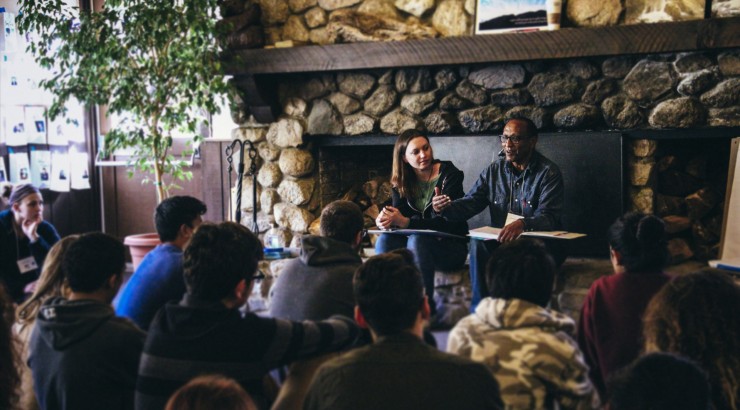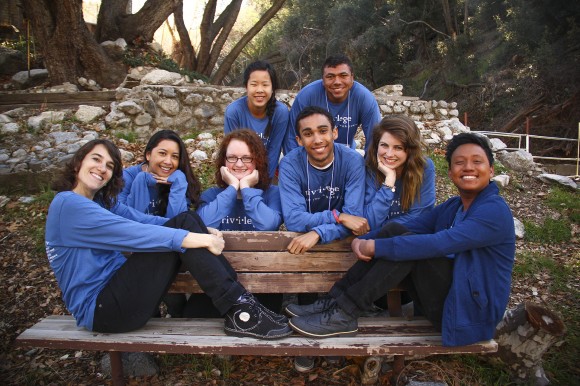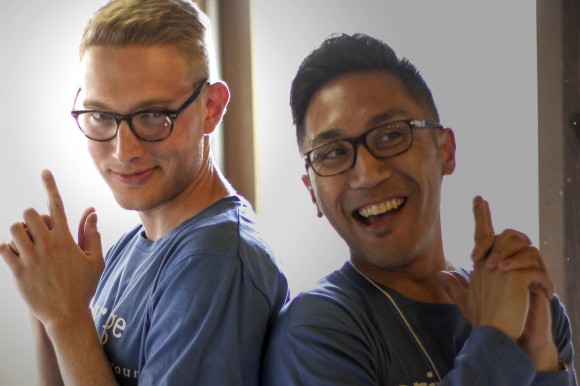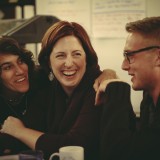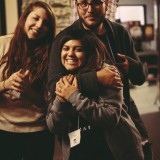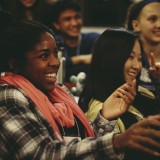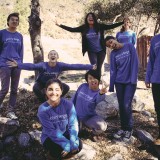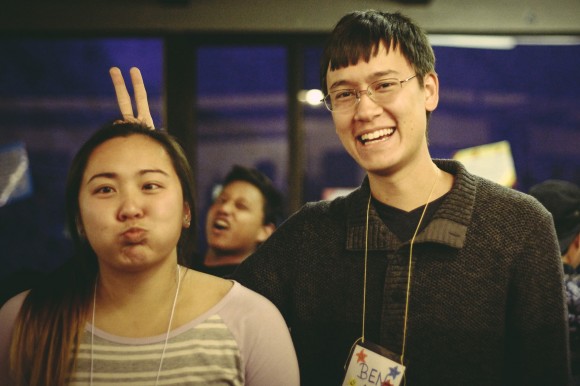Standing up for others: speaking out against the inequity of our world
February 13, 2014
“Many don’t speak up about these issues simply because they may be afraid of not knowing enough. … Let’s move forward with these conversations of social justice and diversity, fearless of anyone judging us, fearless of not knowing enough, but confident in the fact that we have the braveness and ability to stand up for these matters. We all have a voice, so why not use it for something good?”
valium online no prescriptionvalium online without prescriptionbuy valium no prescriptionbuy ambien no prescriptiondiazepam online without prescription online pharmacybuy phentermine no prescriptionbuy tramadol online no prescriptionsoma online pharmacybuy ativan online without prescriptionklonopin online no prescription
-Courtney Bankhead ’17, TV & Broadcast Journalism
Issues like racism and inequality are not easy to address, but programs like Chapman’s
Next Step Social Justice Retreat
are creating safe, supportive avenues to bring about change. This powerful program is
one of many diversity & equity initiatives
offered at Chapman University which engage students in conversations about identity, race, socioeconomic class, privilege, discrimination, and sexism.
The journey starts with oneself
Like many, I hadn’t thought to examine my own identities or worked to understand my privileges until my mentors at Chapman encouraged me to do so. I attended the Next Step Retreat as a student, and loved it so much that I returned two more times to volunteer as an on-site coordinator. I believe this program offers some of the most valuable life lessons that one can learn; lessons that can be applied at every job and with every interpersonal relationship.
It is truly a remarkable experience to witness faculty and students engaging in these difficult conversations in an open, constructive way. This year, I asked faculty, staff, and students to share their thoughts on the importance of addressing the issues that we still face in today’s unequal world.
Assistant Professor Sally Rubin (photo left) with her group of students at the 2014 Next Step social justice retreat.
“I can honestly say that of all the things I’ve done here at Chapman in the past four and a half years this was easily in the top five, if not the very best…. it changed both my life and the lives of the students who were able to attend the retreat.”
– Sally Rubin, Assistant Professor, Dodge College of Film & Media Arts
Conversations beyond the classroom
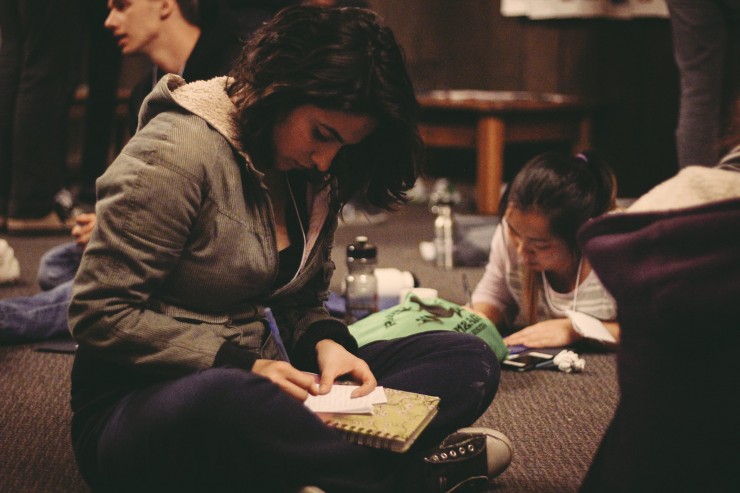
Next Step retreat has created unique moments of learning which simply don’t happen in a classroom environment. For example, I had never expected to be staying up late at night having a discussion with professors about the intersections between race and dating and privilege. And I have heard students and professors talk about how conversations such as these have created some of the most impactful moments in their lives.
“I had been told by many professors at Chapman that knowledge was limitless, but I never really understood it. Hearing the stories of other participants, and connecting with the energies of those I did not, made me feel like I was beginning to experience groundless knowledge.”
– Leon Lukić ’17, Film Production
Read more from Leon on the Student Blog
“Issues of power, privilege, oppression, discrimination, racism, xenophobia, the list goes on and on…. These are things in our society that build walls among us and block us from connecting with one another.
In order to change things, we have to have opportunities like Next Step in order to gain awareness that these issues exist. Once we’re aware of those things, we can actually have a plan of action.”
–Dr. Kris De Pedro, Assistant Professor, College of Educational Studies
Becoming a Global Citizen
By learning to be open, honest, and curious about the things which I find to be different or strange, I have been able to expand my capacity to appreciate the diversity in our world and recognize the things which I do not and cannot ever understand. This is only a small step toward becoming a Global Citizen, but it is an important part of the journey.
“Social justice education is directly tied to our mission statement of “providing personalized education of distinction that leads to inquiring, ethical and productive lives as global citizens.” How can one be an effective global citizen if they are not inquisitive of the diverse experiences, backgrounds and struggles of those that are different from themselves?”
-Joseph Koluder, Residential Education Coordinator
“Everyone is different and unique. We all come from different walks of life, and it’s important to understand that I am only where I am today and who I am today as a result of the relationships with the people around me.”
-Chris Im ’15, Political Science & Psychology
“These conversations are important for the expansion of our hearts and minds… I have only my perspective. As a diverse group, we are able to grow.”
– Kelley Moody ’16, Television & Broadcast Journalism
Applying the knowledge
To be an ally means to understand someone who is different than yourself, and advocate on their behalf when they may be unable to. As part of the curriculum for the Next Step Retreat, Chad King ’15 and Assistant Professor Sally Rubin, Dodge College of Film & Media Arts, presented a film from the
Project W documentary program
which explores issues of sexism in the surfing industry for women.
“Next Step has really helped me to grow in my identities, learning about myself, and learning how I fit into the Chapman Community and the world around me.
In film they say to write what you know and to write personal stories, and in order to do that you have to really know yourself first.
I wanted to learn more about gender and combine that with media and activism, so I took a class at Chapman called Project W and worked on a documentary about sexism and surfing…. it was an experience of growth… learning about gender studies and sexism and having my eyes opened to an issue that I really didn’t know about before starting the class.”
-Chad King ’15, Film Production
“It’s not easy, and it’s not always comfortable. But at the end of the day, you know that you’ve made a positive impact on someone else.
I strive to bring people together with art. Celebrating someone else’s passion, whether it be poetry, photography, music or anything else, is my favorite way of validating and learning from others. There’s so much to gain from art, and my organizations really let me explore diversity in beautiful and creative ways.”
-Jen Eneriz ’14, Creative Writing
Read more from Jen on the Student Blog
Get involved on our campus
For many, including myself, programs like Next Step mark the beginning of a journey exploring issues that would otherwise have been overlooked.
There are many
diversity & equity programs available
for students, staff, and faculty year round. There are dialog groups for different cultures and identity groups, and all are welcoming to anyone who wants to learn more about a particular identity and work to become a supportive ally. Students can also apply for a number of
student employment opportunities
to work on campus in our various diversity & equity initiatives.
“These programs and organizations have really humbled me because all of us, people who are involved in these organizations, come from different places and different backgrounds. Yet we unite in such a unique way, which is pretty great… We all have different stories, stories of oppression, overcoming adversity, triumph, love, and humility.”
-Paulina Vo-Griffin ’16, Business Administration
“In order for understanding and change to come to our communities, we must be willing to explore our identities and have those tough, but necessary, talks about power and inequity.”
– Carmen Carrillo ’14, Sociology / Peace Studies
Read more from Carmen on the Student Blog
